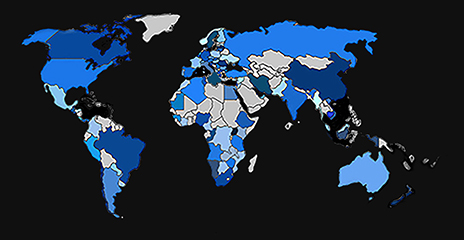
A knowledgeable and experienced M&A deal team can help facilitate and streamline the business sale process-from due diligence to negotiations to the execution of agreements and other post deal transactions. Whether you're buying or selling a company, consider the following to help ensure your team will be a winning one.
Choose members wisely
Some of the most important decisions you'll make in the process concern selecting professionals to help with your M&A. A deal team may consist of financial and legal experts or you may need to expand the team to include - depending on the size and scope of the deal and your industry-specialists from fields such as government and environmental regulation, human resources, risk management, information technology, and operations. Often, a business broker or intermediary will lead the team, helping to organize and package information from all certifiable sources and further negotiate the deal.
Your current legal and accounting advisors may be able to serve on your deal team and recommend M&A experts to work with you. When evaluating potential advisors, consider such factors as their:
• Experience with transactions similar to yours in terms of size and industry,
• Success rate with previous clients,
• Number of engagements handled per year, and
• Professional affiliations.
Also investigate potential complaints of inappropriate or unprofessional behavior, which can be ascertained by contacting relevant regulatory agencies. And be sure these are individuals you can talk with honestly and who, in turn, take your concerns seriously. Once you've assembled your team, open communication and efficient information sharing will be essential to its success.
Guide your team
Because of increased concerns about fraud, financial misrepresentations and the profitability of consolidation, many buyers have intensified their due diligence and are demanding a more qualitative analysis of an acquisition target. They should be ready to devote time to the information-gathering and negotiation process.
As sellers come under intense scrutiny, they should put a deal team in place as early in the process as possible to enhance the value of their assets and prepare to prove their credibility. Any significant surprises uncovered by a buyer during the due diligence phase will almost certainly lead to a reduced offer.
Ensuring that team members understand the goals of a deal is critical. Buyers need to articulate their consolidation objectives-for example, whether theirs is a financial or strategic acquisition-and which of the target's assets are of greatest interest. Sellers need to communicate their selling price goals and unique value drivers and outline other issues, such as the protection of intellectual property and financial information.
Without clear guidance, conflicting views and opinions among the deal team could hamper its productivity and efficiency. You can avoid this by assigning tasks to specific individuals, based on their areas of expertise. And both sellers and buyers should consider forming due diligence committees. Comprising company executives and select deal team advisors, the committee should meet regularly to review the status and progress of the due diligence process.
Know your purchase agreement
Buyer and seller deal teams also will be instrumental during the negotiation process. The teams can help outline the structure of the deal, purchase price, financial terms, integration and any potential "deal killers."
Once the parties have come to an agreement, the deal team will prepare and review the purchase agreement's terms and conditions. For example, the team may work through actual conditions that may arise and run model purchase price adjustments using anticipated inputs, such as how current assets and current liabilities are defined.
The deal team must be prepared to include additional stipulations into the purchase agreement to solve issues that will affect the final purchase price, such as a valuation of a piece of intellectual property. Once the purchase agreement is signed, the team will continue to work together through any regulatory consent processes and assist, as necessary, with the process of merging finances, operations and other systems. The deal team also can help ensure that the terms of the transaction are carried out.
Start building yours
The process of buying or selling a business can easily distract owners and executives from important day-to-day operations. An efficient deal team can help by focusing your transaction goals at every phase-from pre-negotiation to integration.
By Omar Garcia
Managing Partner, VR Mergers & Acquisitions in San Antonio, TX. U.S.A.
